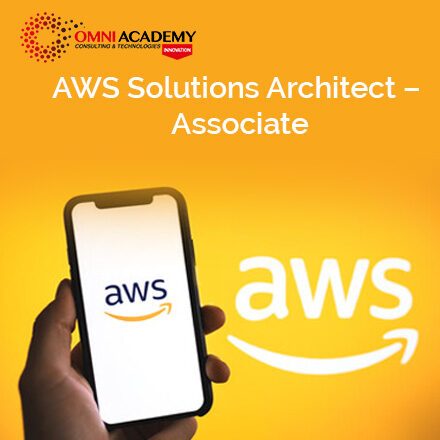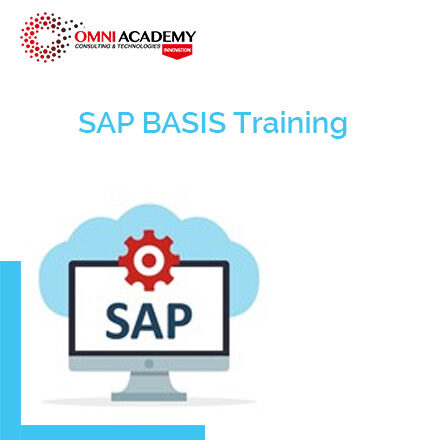Oracle Java Cloud Service Certified Associate – 1Z0 161
Oracle Java Cloud Service helps you to quickly create, configure and manage your Java EE application environment in the cloud, including an Oracle WebLogic Server domain. Major companies are moving to Cloud Storage and in a fraction of the time it would normally take on-premises. In Future now there will be more demanding jobs in cloud architect.
Is Certification Worth It?
Why Java Cloud Service Certification(1Z0-161)?
Oracle Java Cloud Service Certified Associates are skilled in the key areas of Java Cloud Service functionality and how to use them in the development, deployment and migration of Java EE applications. They able to secure, tune and troubleshoot Java Cloud Service.
Certification Benefit
Course Outline
Module1:JCS Overview
- Describe the Cloud today and the requirements for Cloud success; and differentiate the 3 major types of cloud (private, hybrid, public) and the differences between IaaS, Paas, and SaaS clouds
- Describe the three Oracle cloud offerings and identify the features of the Oracle Java Cloud
- Identify dependencies for JCS, components of the JCS architecture, and how you interact with JCS
- Log in to your Cloud account
- Select Oracle Cloud Services from the Store, Add a service to the shopping cart and purchase services
- Identify the JCS main use cases
- Identify key features of JCS provisioning, patching, backup/restore, scaling, data caching & scaling
- Identify the key components for interacting with JCS; and create the JCS instance
- Perform the preparatory steps necessary before creating a Java Cloud Service; Create cloud storage containers for JCS and DB
- Identify the JCS management tool options and what they do
- Recognize the key components of the JCS admin diagram
- Access JCS WebLogic Server Domains and perform basic functions; Differentiate the basics of WebLogic Scripting Tool (WLST)
- Access the Oracle Fusion Middleware Control
- Identify how to use the REST API to control JCS Life Cycle
- Use either Linux or Windows to connect to JCS via SSH; Configure the SSH tunnel; and Identify the default listening ports
- Describe Oracle Coherence, what it supports, what it does, and key terms; Define coherence clusters or DataGrid
- Identify the features/functions of the 3 JCS options and the Apps Composer,
- Identify the features, functions, and benefits of JCS SaaS extensions; and differentiate between JCS and JCS-SaaS extensions.
- Identify the provisioning and scaling differences between JCS and JCS-SX; and the application standards supported by JCS-SaaS extension
- Describe the functions of Java Service Control and the Developer Cloud Service
- Identify the features of the Oracle Cloud Marketplace; and the Oracle Traffic Director (OTD)
- Describe OTD administration topology and architecture; and compare OTD to WLS Domain Model
- Navigate the Java EE Application Server Architecture; describe the WLS domain components; and use the Webogic Server Administration tool
Module2: Development and Deployment
- Describe the tasks to deploy applications in JCS
- Use an IDE to deploy applications in JCS
- Deploy applications via FMW control, WebLogic Server Admin Control, WLST commands
- Undeploy applications
- Access applications deployed in the cloud
- Describe how to develop applications for use in Java Cloud Services
- Use Database objects (from the Oracle Database Cloud Service) in a Java Cloud application
- Gather required information on the application at the source [on premise] environment
- Using the conventional export/import method, transfer data to the JCS environment
- Setup the Fusion Middleware artifacts in the JCS environment
- Migrate the application artifacts to the JCS environment
Module3:User and Instance Management
- Create new JCS users and assign roles
- Batch assign JCS roles
- Modify user login details and roles
- Recognize the differences between JCS, VM host and WebLogic users.
- View, Suspend and Delete Instances
- Scale JCS Instances
- Backup & Restore JCS Instances
- Patch a JCS Instance
- Identify the capabilities of the REST API
Module4:Co-existence and Extensions
- Describe the Oracle Java Cloud Service – SaaS Extension; and given lists, select the features of the Oracle Java Cloud Service – SaaS Extension
- Identify Java EE technologies supported for Application development on the Oracle Java Cloud Service – SaaS Extension
- Recognize how JCS-SaaS extension integrates with other cloud solutions; and associated limitations.
- Recognize guidelines for building Java EE and ADF applications for the Oracle Java Cloud Service – SaaS Extension
- Identify guidelines for performing common operationssuch as logging, persistence, and local file access
- Explain the features of the Oracle Java Cloud Service – SaaS Extension Software Development Kit (SDK), how to use it, and how to integrate with IDEs
- Explain the regions of the Oracle Java Cloud Service – SaaS Extension Control
Module5: Monitoring and Troubleshooting
- Sequence the steps for tuning your application environment
- Metrics: identify metrics provided by the Java Cloud Services Control Console, the Fusion Middleware control console, and by the WebLogic Administration Console
- Identify the available tools, and their capabilities, that can be used to monitor the WebLogic Server.
- Describe the capabilities of Oracle Enterprise Pack for Eclipse (“OEPE”)
- Deploy applications to Java Cloud Services
- Troubleshoot an application
- Use whitelists to prevent problems from occurring
- Recognize common problems that may be encountered in Java Cloud Services
- Troubleshoot and find problems related to Java Cloud Services
Module6:Security
- Given a diagram, complete the diagram with WebLogic Server (WLS) security architecture components
- Configure security realms
- Configure users and groups
- Configure roles
- Configure policies
Training Track: Oracle Java Cloud Service Certified Associate – 1Z0 161
International Student Fee: 500$
Job Interview Preparation (Soft Skills Questions & Answers)
- Tough Open-Ended Job Interview Questions
- What to Wear for Best Job Interview Attire
- Job Interview Question- What are You Passionate About?
- How to Prepare for a Job Promotion Interview
Your FREE eLEARNING Courses (Click Here)
Internships, Freelance and Full-Time Work opportunities
- Join Internships and Referral Program (click for details)
- Work as Freelancer or Full-Time Employee (click for details)
Flexible Class Options
- Week End Classes For Professionals SAT | SUN
- Corporate Group Trainings Available
- Online Classes – Live Virtual Class (L.V.C), Online Training
Popular Oracle Cloud Courses
Oracle Financials Cloud: General Ledger 2017 Implementation Essentials – 1Z0 960
Oracle Financials Cloud: Receivables 2017 Implementation Essentials – 1Z0 962
Oracle Financials Cloud: Payables 2017 Implementation Essentials – 1Z0 961
Oracle Fusion Procurement Cloud 2017 – 1z0-963
Oracle Order Management Cloud – 1z0-347
Oracle Human Resource Cloud 2017 – 1z0-965
Oracle Sales Cloud – CRM
Oracle Business Intelligence Cloud
[/vc_column_text]







